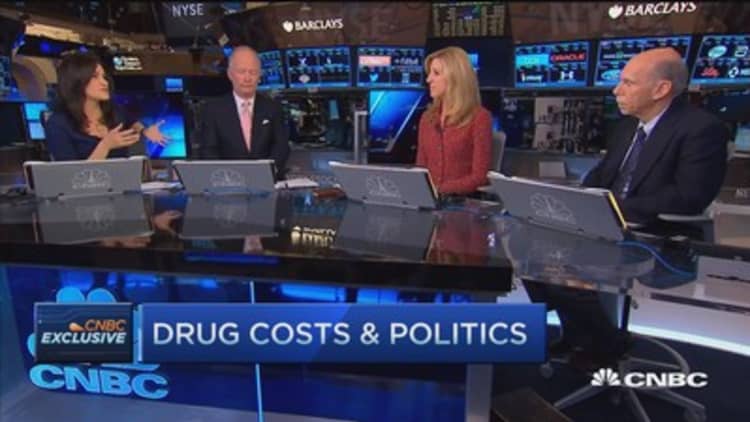
No other advanced country even comes close to the United States in annual spending on health care, but plenty of those other countries see much better outcomes in their citizens' actual health overall.
A new Commonwealth Fund report released Thursday underscored that point — yet again — with an analysis that ranks 13 high-income nations on their overall health spending, use of medical services, prices and health outcomes.
The study data, which is from 2013, predates the full implementation of Obamacare, which took place in 2014. Obamacare is designed to increase health coverage for Americans and stem the rise in health-care costs.
The findings indicate that despite spending well in excess of the rate of any other of those countries in 2013, the United States achieved worse outcomes when it comes to rates of chronic conditions, obesity and infant mortality.
One rare bright spot for the U.S., however, is that its mortality rate for cancer is among the lowest out of the 13 countries, and that cancer rates fell faster between 1995 and 2007 than in other countries.
"Time and again, we see evidence that the amount of money we spend on health care in this country is not gaining us comparable health benefits," said Dr. David Blumenthal, president of the Commonwealth Fund. "We have to look at the root causes of this disconnect and invest our health-care dollars in ways that will allow us to live longer while enjoying better health and greater productivity."
The U.S. spent an average of $9,086 per person on health care in 2013, which translated to more than 17 percent of gross domestic product, the fund noted.
That level of health spending relative to GDP is about 50 percent more than any of the countries studied for the report, which are Australia, Canada, Denmark, France, Germany, Japan, the Netherlands, New Zealand, Norway, Sweden, Switzerland and the United Kingdom.
The Commonwealth Fund said that in the U.S., the life expectancy in 2013 was an average of 78.8 years. By contrast, in Switzerland, which had the second-highest health spending per capita at $6,325, life expectancy was more than four years higher, at 82.9 years.
U.S. spending on government-sponsored health care was also significantly higher per capita than the other countries, "despite being the only country in the study without universal health coverage," the Commonwealth Fund said.
The U.S. government spent $4,197 per person in 2013 on health care, primarily for Medicare and Medicaid benefits. That's in contrast to the U.K., where all residents are covered by the National Health Service, and where the government's health-care spend was just $2,802 per person.
The report also noted that "despite spending more on health care, Americans have fewer hospital and physician visits" than most of the other countries. But, "Americans appear to be greater consumers of medical technology," which includes diagnostic imaging like MRIs and CT scans as well as pharmaceuticals.
The average number of prescription drugs taken by adults in the U.S. was 2.2 medications. New Zealand, where adults took the same average number of drugs as the U.S., was the only other country to exceed two medications per adult.
The Commonwealth Fund report said that pharmaceuticals as well health services were more expensive in the United States than in other countries.
Heart bypass in the U.S. cost $75,345 on average, compared to $42,130 in Australia, the second-highest amount among the other countries. An appendectomy in the U.S. cost an average of $13,910, compared to $9,845 in Switzerland, which had the second-highest average.




